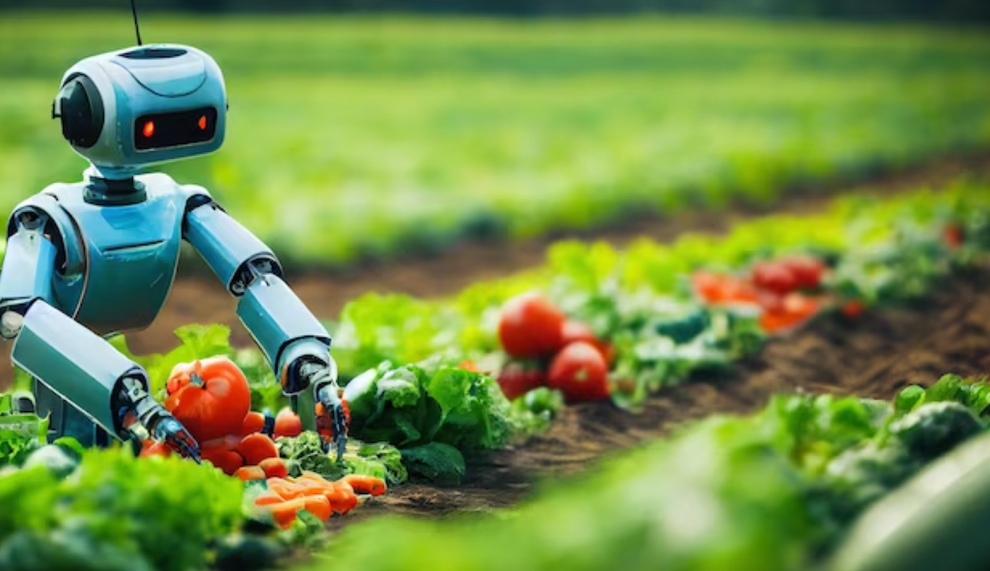Imagine fields teeming with sensors, drones zipping overhead, and robots toiling alongside farmers. This isn’t a futuristic vision; it’s the reality of AI in agriculture, where cutting-edge technology is transforming the way we grow food. From optimizing crop yields to managing soil health, AI is revolutionizing farming, making it more efficient, sustainable, and profitable.
The Seeds of Innovation:

Several key areas showcase the power of AI in agriculture:
1. Crop and Soil Management:
- Data-Driven Decisions: AI analyzes data from drones, satellites, and ground sensors to understand soil conditions, moisture levels, and crop health. This data empowers farmers to make informed decisions about irrigation, fertilization, and pest control, optimizing resource use and maximizing yields.
- Predictive Power: AI algorithms analyze historical data and weather patterns to predict potential diseases, pest outbreaks, and weather events. This foresight allows farmers to take proactive measures, minimizing losses and protecting their crops.
- Precision Agriculture: By pinpointing areas within a field that require different levels of attention, AI enables farmers to apply resources like water, fertilizer, and pesticides with precision, minimizing waste and optimizing resource allocation.
2. Automated Tasks:
- Robot Labor: Autonomous robots are increasingly taking on time-consuming and labor-intensive tasks like weeding, planting, and harvesting. This frees up farmers to focus on other aspects of their operations and improves efficiency.
- Automated Monitoring: Drones equipped with AI-powered cameras patrol fields, identifying potential problems like pests, diseases, and stressed crops. This real-time monitoring allows for early intervention and minimizes damage.
- Livestock Management: AI sensors can monitor the health and well-being of livestock, tracking vital signs, feeding patterns, and movement. This data helps farmers identify sick animals early, optimize feeding schedules, and improve overall animal welfare.
Challenges and Opportunities:
Though promising, AI in agriculture faces challenges:
- Data Privacy and Security: Collecting and managing vast amounts of agricultural data raises concerns about privacy and security. Ethical considerations and responsible data practices are crucial.
- Accessibility and Cost: Implementing AI technology can be expensive and require initial investment, potentially creating a barrier for smaller farms. Affordable solutions and training programs are necessary for broader adoption.
- Digital Divide: Access to reliable internet connectivity is essential for utilizing AI in agriculture. Bridging the digital divide in rural areas is crucial for equitable access to this technology.
Despite these challenges, the potential of AI in agriculture is vast. By fostering collaboration between farmers, researchers, and tech companies, we can develop and implement AI solutions that address these challenges and empower farmers of all sizes to reap the benefits of this transformative technology.
The Future of Farming:
With AI taking root, the future of agriculture promises to be smarter, greener, and more productive. Imagine fields teeming with data and intelligence, where robots collaborate with farmers, and crops flourish under the watchful eye of AI. This isn’t just a vision of the future; it’s the fertile ground we’re sowing today, ensuring a bountiful harvest for generations to come.
















Add Comment